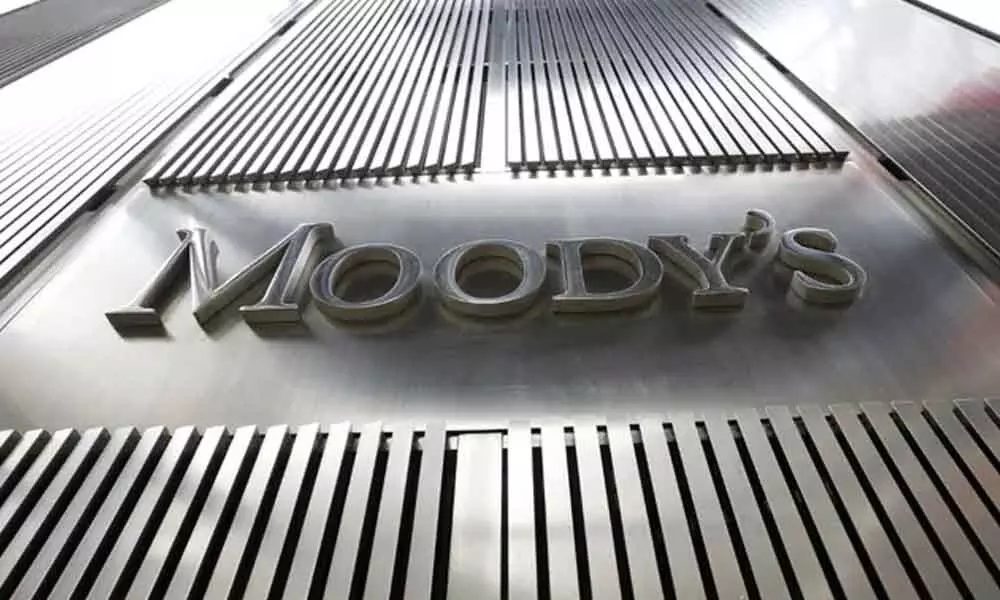Indian GDP likely to grow at 9.3% in FY22

Indian GDP likely to grow at 9.3% in FY22
2nd Covid wave raises risks to credit profile, says Moody’s
New Delhi: INDIAN economy would rebound in the current fiscal ending March 2022 and clock a growth of 9.3 per cent, but a severe second Covid wave has increased risks to India's credit profile and rated entities, Moody's Investors Service said on Tuesday.
Moody's, which has a 'Baa3' rating on India with a negative outlook, said it expects a decline in economic activity in the June quarter due to reimposition of lockdown measures along with behavioural changes on fear of contagion. "India's economy rebounded quickly from a steep contraction in 2020, but a severe second wave of the coronavirus has increased risks to the outlook with potential longer-term credit implications.
Risks to India's credit profile, including a persistent slowdown in growth, weak government finances and rising financial sector risks, have been exacerbated by the shock," Moody's said. In an 'FAQ on the coronavirus second wave and the sovereign's medium-term credit challenges', the US-based rating agency said the pandemic will leave new economic scars and deepen pre-pandemic constraints and GDP growth would average around 6 per cent in the longer term.
"We expect a decline in economic activity in the April-June quarter, followed by a rebound, resulting in real, inflation-adjusted GDP growth of 9.3 per cent in the fiscal year ending March 2022 (fiscal 2021) and 7.9 per cent in fiscal 2022," it said, adding that the impact from potential subsequent waves remain a risk to its forecasts.
Moody's had in February forecast a 13.7 per cent growth in current fiscal. The Indian economy contracted by 7.3 per cent in fiscal 2020-21 as the country battled the first wave of Covid, as against a 4 per cent growth in 2019-20.
It said the government's ability to limit the spread of the virus and materially increase the rate of vaccinations will have a direct impact on the trajectory of both health and economic outcomes. India began the third phase of its vaccination campaign for those aged 18-44 on May 1, making vaccines available to the entire adult population.
However, as of late May only around 15 per cent of the country's population had received at least one dose of the vaccine, Moody's said. A shortage of vaccines and logistical challenges reaching a large rural population (about two-thirds of the population) has complicated the vaccine rollout, it said, adding that it expects substantial progress in vaccination pace by 2021 end.
"Longer-term risks to India's economy would increase if the second wave extended beyond June and the pace of vaccinations was slower than we expect. This could contribute to more scarring if it caused a permanent loss of jobs and business closures, particularly in more productive sectors of the economy outside of agriculture in and around urban centres, resulting in a fundamentally weaker growth dynamic," Moody's added.
The Indian government aims to vaccinate the entire adult population by the end of December this year.
India's active Covid caseload count reached around 37 lakh in early May with daily new cases exceeding 4 lakh, but has since started to decline. Moody's said the surge in the virus, driven by a highly contagious variant, has put significant strain on India's healthcare system with hospitals overrun and availability of medical supplies limited.
"India's key credit challenges include a persistent slowdown in growth, weak government finances and financial sector risks. These vulnerabilities weighed on the sovereign credit profile before the coronavirus pandemic and have been exacerbated by the shock," it added.











